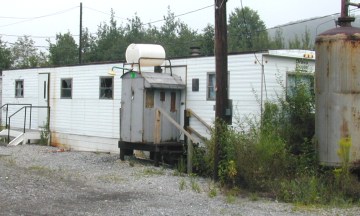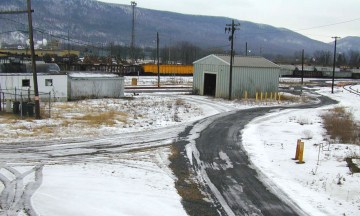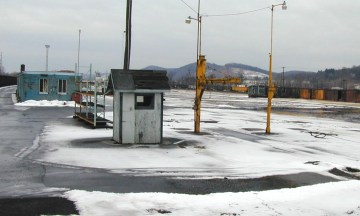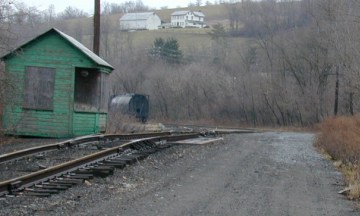Pennsylvania’s nationally recognized Land Recycling Program is helping to transform vacant brownfields into bustling job-producing sites, while still protecting our environment. More than 15,000 people now are working on old industrial sites in the Commonwealth. Many more opportunities for redevelopment still exist for those who want to turn abandoned industrial sites into safe, productive assets that contribute to Pennsylvania’s economic growth and environmental health.
JRA staff can assist you in seeking state funds for the redevelopment of your abandoned site in conjunction with your rail project.
Summary of Act 2 of 1995: The Land Recycling and Environmental Remediation Standards Act
The primary goal of Act 2 is to encourage the voluntary cleanup and reuse of contaminated commercial and industrial sites. This strategy of encouraging the redevelopment of sites with existing roads, sewers, water lines and utilities is often more cost-efficient than providing this infrastructure at virgin sites. The strategy also helps to preserve prime farmland, forests and open areas from development.

Act 2 provides incentives to promote the voluntary development and implementation of cleanup plans. Clear, uniform cleanup standards and standardized review procedures promote the voluntary elimination of public health and environmental hazards. Cleanup plans will be based on the actual risk that contamination on a site may pose to public health and the environment.
The owner or developer of a site is relieved of liability for further cleanup of the site’s contamination when the remediation standard is attained. The owner or developer of a special industrial area has limited liability and is only responsible for remediation of imminent threats. They are not responsible for remediation of any other contamination.
The Industrial Sites Reuse (ISR) Program provides grants and low interest loans for environmental assessments and remediation. The program is designed to foster the cleanup of environmental contamination at industrial sites, thereby bringing blighted land into productive reuse.
Brownfields Inventory Grants (BIGs) provide money to municipalities and economic development agencies to inventory their Brownfields properties. If these properties are available for redevelopment, the grantee will gather information about the property and post it on the web in the Pennsylvania Brownfields Directory.
Representative Projects
Project : Newberry Yard Former Locomotive Fueling Facility
This project involved a Phase II environmental assessment and a remediation plan on an eight (8) acre portion of the Newberry Rail Yard owned by the SEDA-COG Joint Rail Authority. The goal of this project was to obtain Act 2 clearance and market the property as an industrial building site. As indicated in the photo below, the property contains remnants of past railroad operations. The property also has direct access to Trenton Avenue.

SEDA-COG obtained a grant from the Pennsylvania Department of Community and Economic Development (PA DCED) for the assessment and is in the process of applying for a grant for the remediation. Once the remediation is accomplished, the site will be marketed for industrial development. If you are interested in purchasing this site, please contact Kyle Postupack, JRA Property Manager at 570-524-4491.
Project: Newberry Yard Former Car Shop Facility
Converse Consultants was selected to perform a Phase I and II environmental assessment and to develop a cleanup plan for this 14 acre portion of the Newberry Rail Yard. SEDA-COG received a grant from the PA DCED and is preparing the site for industrial development.

This site is located on the south portion of Newberry Yard and was formerly the offices of the Lycoming Valley Railroad. It used to be the location of Conrail’s car repair operations.
Project: Nittany & Bald Eagle Railroad – Various Cleanup Projects
As you might expect, railroad yards are not the cleanest places around. However, the SEDA-COG Joint Rail Authority is intent on doing its best to cleanup environmental mistakes of past railroads. Over the years, before the JRA took ownership of the tracks in Bellefonte, careless handling of chemicals, oil and fuel resulted in the contamination of soil around the Bellefonte Engine House. The JRA has retained Converse Consultants to analyze the soil and groundwater adjacent to the engine house and further southeast towards Sunnyside Yard. The JRA will be applying for funds to cleanup these areas and to implement measures that will prevent degradation to the environment.

For more information on how these programs can help your business, contact Mr. Steve Herman, Manager, Transportation Planning and Public Safety Programs, SEDA Council of Governments.